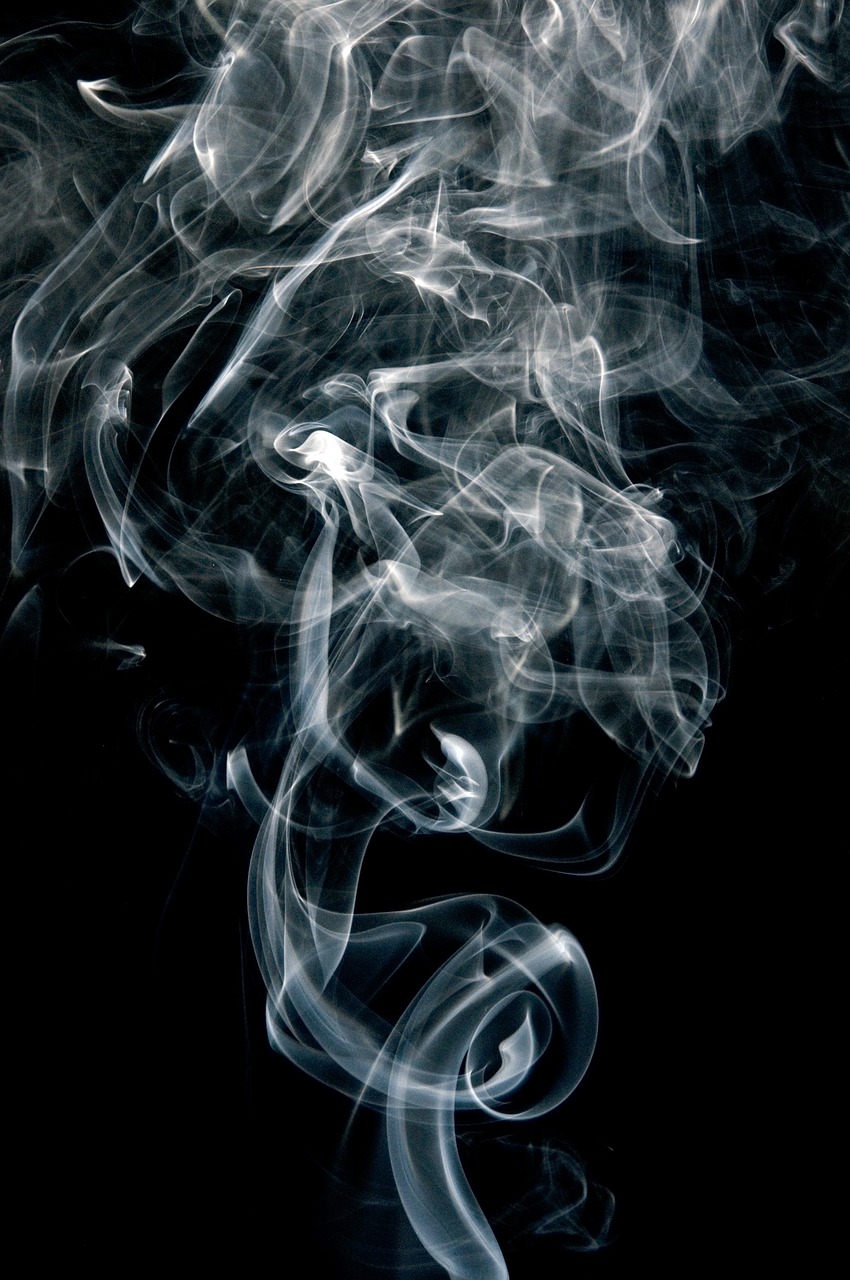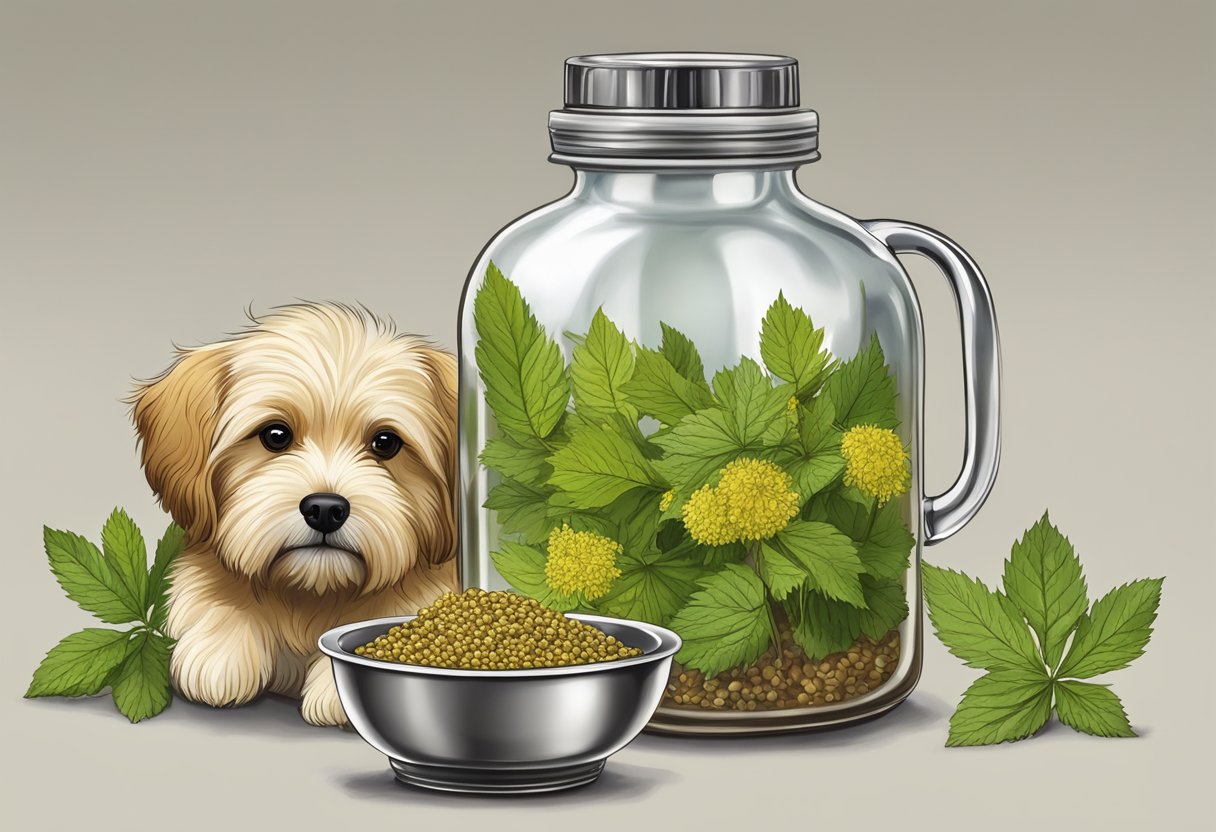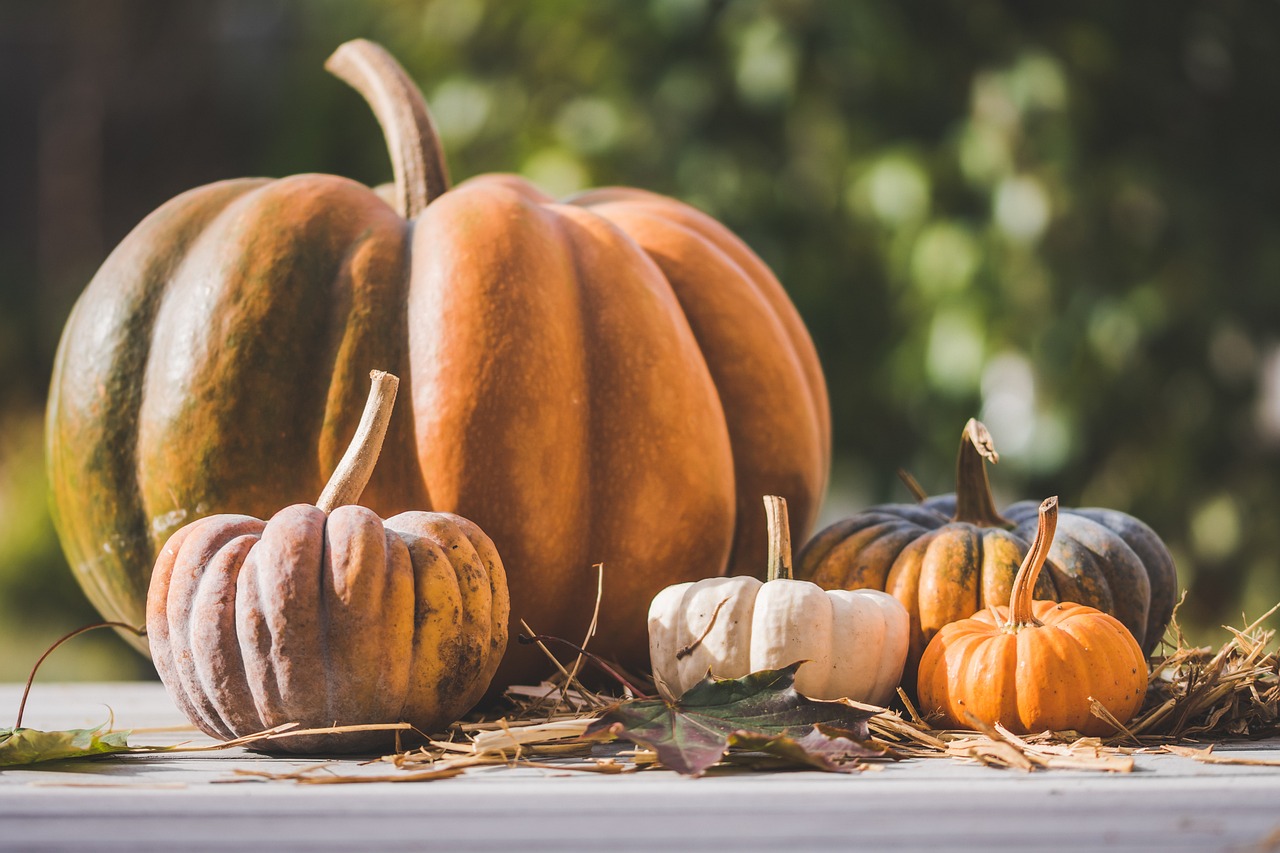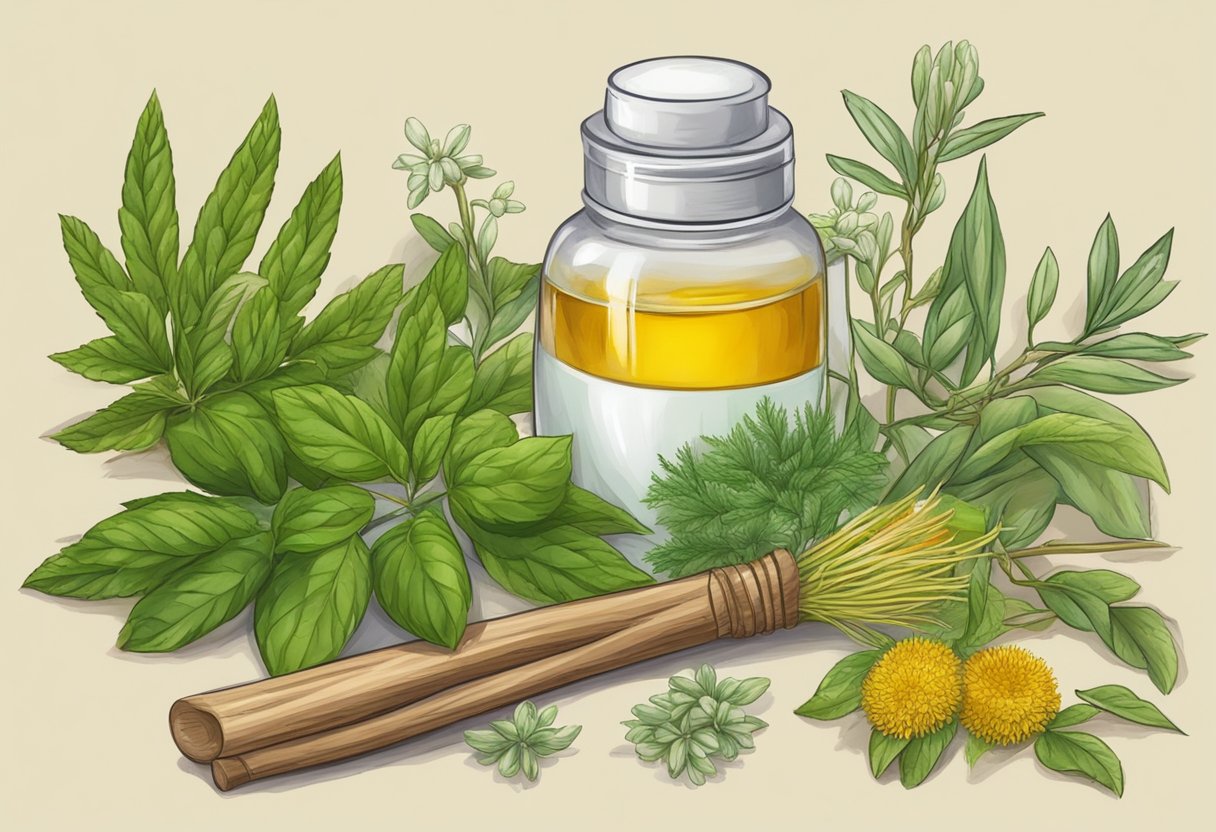Herbal tea is a popular beverage that is consumed all over the world for its numerous health benefits and soothing properties. However, some people have started to wonder “if it is possible to”can you smoke herbal tea?” and what the effects of doing so might be. In this article, we will explore the topic of smoking herbal tea and provide you with all the information you need to make an informed decision.
Disclaimer: This article is provided for informational purposes only and should not replace professional medical advice. Please consult with a qualified healthcare practitioner or herbalist before using any herbal remedies.

First, we will provide an overview of herbal tea and how it is traditionally consumed. Then, we will delve into the basics of smoking herbal tea, including the tools and techniques used. We will also examine the potential health effects of smoking herbal tea and discuss whether it is a safe practice. Finally, we will provide some practical tips for those who are interested in trying it out.
Key Takeaways
- Herbal tea can be smoked, but it is not a common practice and there is limited research on its safety and efficacy.
- Smoking herbal tea can have both positive and negative health effects, depending on the specific herbs used and the frequency of use.
- If you are interested in smoking herbal tea, it is important to do your research and proceed with caution, using only high-quality herbs and appropriate smoking tools.
Understanding Herbal Tea
Herbal tea is a popular beverage made by steeping various plant materials in hot water. Unlike traditional tea, which is made from the leaves of the Camellia sinensis plant, herbal tea can be made from a variety of plant parts, including flowers, roots, and bark.
One of the most significant differences between herbal tea and traditional tea is that herbal tea does not contain caffeine. This makes it an ideal choice for those who are sensitive to caffeine or who want to avoid it altogether.
Another difference between herbal tea and traditional tea is that herbal tea blends can be made with a wide range of plant materials, resulting in a vast array of flavors and health benefits. Some popular herbal tea blends include chamomile, peppermint, and ginger.
It is important to note that not all herbal teas are created equal. Some herbal teas may contain ingredients that can be harmful in large quantities, such as licorice root or ephedra. It is always a good idea to research the ingredients in any herbal tea blend before consuming it.
When it comes to making herbal tea, there are several methods to choose from. Some people prefer to use loose tea leaves, while others prefer the convenience of tea bags. Either way, it is essential to use high-quality ingredients to ensure the best possible flavor and health benefits.
Overall, herbal tea is a delicious and healthful beverage that can be enjoyed by people of all ages. Whether you prefer a classic chamomile blend or a more exotic herbal infusion, there is sure to be an herbal tea that suits your tastes and needs.
Smoking Herbal Tea: The Basics
We often receive questions from people asking if it is possible to smoke herbal tea. The answer is yes, you can smoke herbal tea, but there are a few things you should know before you try it.

Herbal Tea Cigarettes
Herbal tea cigarettes are a popular alternative to traditional cigarettes. They are made from a blend of herbs and spices and do not contain tobacco or nicotine. These cigarettes are often marketed as a healthier alternative to traditional cigarettes, but it is important to note that they still produce smoke and can be harmful to your health.
Herbal Smoking Blends
Herbal smoking blends are another option for those looking to smoke herbal tea. These blends are made from a combination of herbs and spices and are often used as a tobacco substitute. They can be smoked on their own or mixed with tobacco to reduce the amount of nicotine inhaled.
Smoke Tea
Smoke tea, also known as Lapsang Souchong, is a type of black tea that is dried over pine wood fires, giving it a smoky flavor and aroma. While smoke tea is not specifically designed for smoking, some people do smoke it for its unique taste and smell.
Tea Smoking
Tea smoking is another way to smoke herbal tea. This involves placing loose tea leaves in a pipe or rolling them into a cigarette and smoking them. It is important to note that tea smoking can be harmful to your health, as the smoke produced by burning tea leaves can contain harmful chemicals.
Herbal Smoke Blend
An herbal smoke blend is a combination of herbs and spices that are specifically designed for smoking. These blends can be used on their own or mixed with tobacco to create a custom smoking experience. It is important to note that herbal smoke blends can still be harmful to your health, as they produce smoke when burned.

Herbal Joints
Herbal joints are another option for those looking to smoke herbal tea. These joints are made from a combination of herbs and spices and are often used as a tobacco substitute. They can be rolled on their own or mixed with tobacco to reduce the amount of nicotine inhaled.
Cigarette Habit
If you are looking to smoke herbal tea as a way to quit smoking traditional cigarettes, it is important to note that herbal cigarettes and smoking blends are not a safe alternative to tobacco. They still produce smoke and can be harmful to your health. It is important to speak with a healthcare professional about quitting smoking and developing a plan that works for you.
Own Cigarettes
If you are interested in smoking herbal tea, it is important to make your own cigarettes or purchase herbal smoking blends from a reputable source. It is not recommended to smoke loose tea leaves or use tea bags, as they are not designed for smoking and can be harmful to your health.
In conclusion, smoking herbal tea is possible, but it is important to understand the risks involved. Herbal cigarettes and smoking blends are not a safe alternative to tobacco, and it is important to speak with a healthcare professional about quitting smoking and developing a plan that works for you. If you do choose to smoke herbal tea, make sure to do so responsibly and use only products that are specifically designed for smoking.
Health Effects of Smoking Herbal Tea
Smoking herbal tea has become a popular trend among individuals who are looking for a tobacco-free alternative to smoking. While it may seem like a healthier alternative, it is important to understand the health effects of smoking herbal tea before making the switch.
Positive Effects
Herbal tea contains beneficial compounds that can have positive effects on the body. For example, chamomile tea has been known to promote relaxation and improve sleep quality, while peppermint tea can aid in digestion and relieve nausea. Smoking herbal tea can have similar effects, as the compounds in the tea are still present when smoked.
Health Benefits of Tea
Tea has been shown to have numerous health benefits, including improving mental function, reducing the risk of heart disease, and promoting weight loss. However, it is important to note that these benefits are typically associated with drinking tea, not smoking it.
Potential Side Effects
While smoking herbal tea may seem like a safer alternative to smoking tobacco, it is not without potential side effects. Smoking any substance can lead to increased levels of carbon monoxide in the body, which can have negative health effects. Additionally, smoking herbal tea can irritate the lungs and lead to respiratory issues.
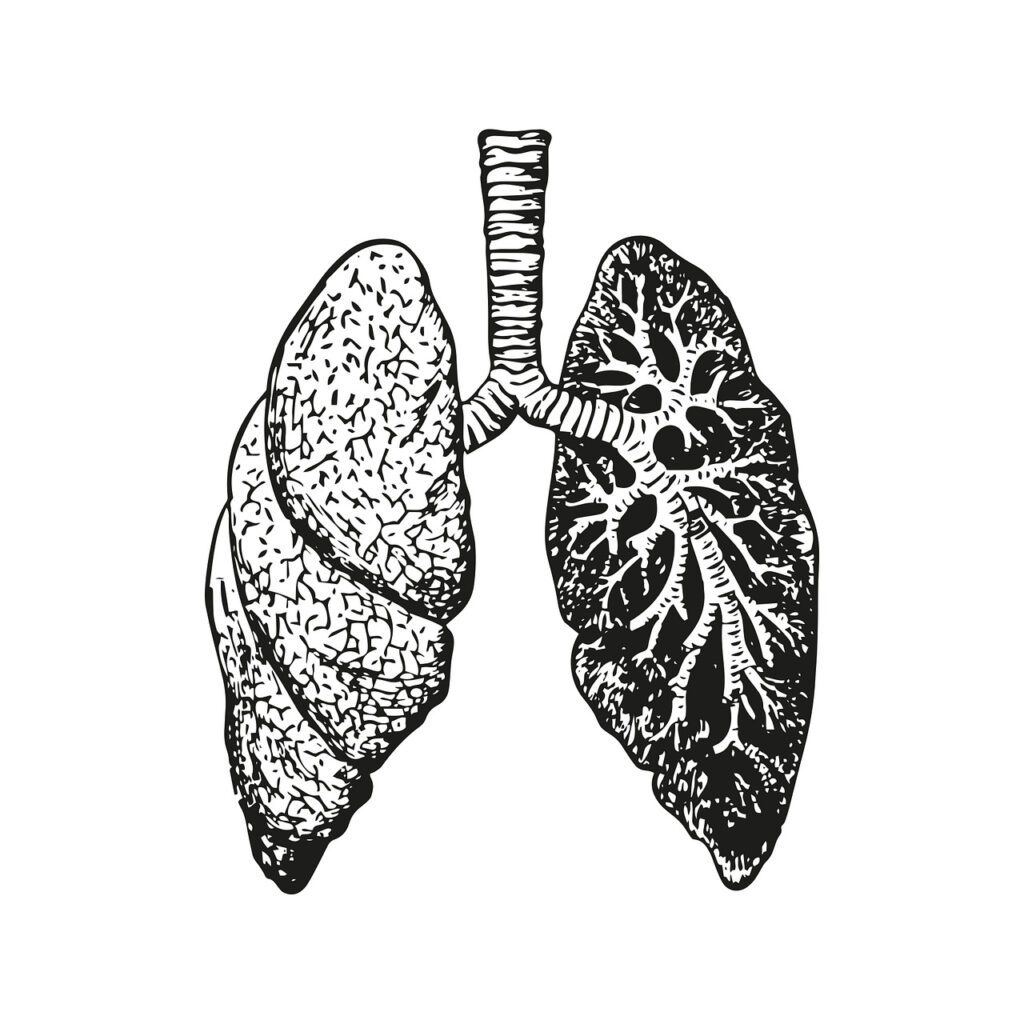
Potential Health Risks
While the health risks of smoking herbal tea are not as well-studied as those associated with tobacco use, there is some evidence to suggest that smoking herbal tea may increase the risk of lung cancer. This is because herbal tea smoke contains many of the same carcinogens as tobacco smoke.
In conclusion, while smoking herbal tea may seem like a healthier alternative to smoking tobacco, it is important to understand the potential risks and health effects before making the switch. If you are looking for the health benefits of tea, it is recommended that you drink it instead of smoking it.
Popular Choices for Herbal Tea Smoking
When it comes to smoking herbal tea, there are plenty of popular choices available. Loose-leaf tea is a great way to experiment with different tea blends and create your own perfect blend. Some of the best teas for smoking include chamomile tea, green tea extract, and licorice root.
Chamomile tea bags are a popular choice for smoking because they are easy to find and have a mild, soothing flavor. They are also known for their calming and relaxing properties, making them a good choice for smokers looking to unwind. Green tea extract is another popular choice because it contains antioxidants and is believed to aid in weight loss.
If you’re looking for a more medicinal approach, smoking herbs such as lavender, peppermint, and eucalyptus can provide relief from headaches, congestion, and other ailments. These herbs can be found in loose tea form or as part of a pre-made blend.
Adding loose tea to your smoking mix is also a good idea. Loose tea can add a unique flavor and aroma to your smoking experience. Some popular loose tea blends for smoking include chai tea, jasmine tea, and oolong tea.
In addition to these popular choices, there are plenty of other tea strains and herbal ingredients that can be used for smoking. It’s important to do your research and make sure the herbs you are smoking are safe and free from harmful chemicals. As with any smoking habit, moderation is key.
Alternatives to Smoking Herbal Tea
As we know, smoking herbal tea is not a safe or healthy alternative to smoking tobacco cigarettes. It can cause respiratory issues and other health problems. Therefore, it is important to consider alternative methods to smoking that are safer and healthier.
One of the most common alternatives to smoking tobacco cigarettes is using nicotine gum or a nicotine patch. Nicotine gum is a type of chewing gum that contains nicotine, and it can help reduce cigarette cravings and withdrawal symptoms. The nicotine patch is a small, adhesive patch that is placed on the skin and delivers a steady dose of nicotine throughout the day.
Another alternative to smoking tobacco cigarettes is using pipe tobacco. Pipe smoking is often considered a more relaxed and enjoyable experience compared to smoking cigarettes. However, it is important to note that pipe smoking still contains harmful chemicals and can lead to health issues.
There are also alternative methods to smoking tobacco products, such as vaping or using an e-cigarette. Vaping involves inhaling a vapor that is created by heating a liquid that contains nicotine and other chemicals. While vaping is generally considered safer than smoking tobacco cigarettes, it is not completely risk-free and can still lead to health issues.
Lastly, it is important to consider non-nicotine alternatives to smoking, such as meditation, exercise, or other stress-reducing activities. These activities can help reduce cigarette cravings and withdrawal symptoms without the use of nicotine.
In conclusion, smoking herbal tea is not a safe or healthy alternative to smoking tobacco cigarettes. There are many alternative methods to smoking that are safer and healthier, such as using nicotine gum or a nicotine patch, pipe smoking, vaping, or non-nicotine alternatives like meditation or exercise. It is important to find the method that works best for you and your health needs.
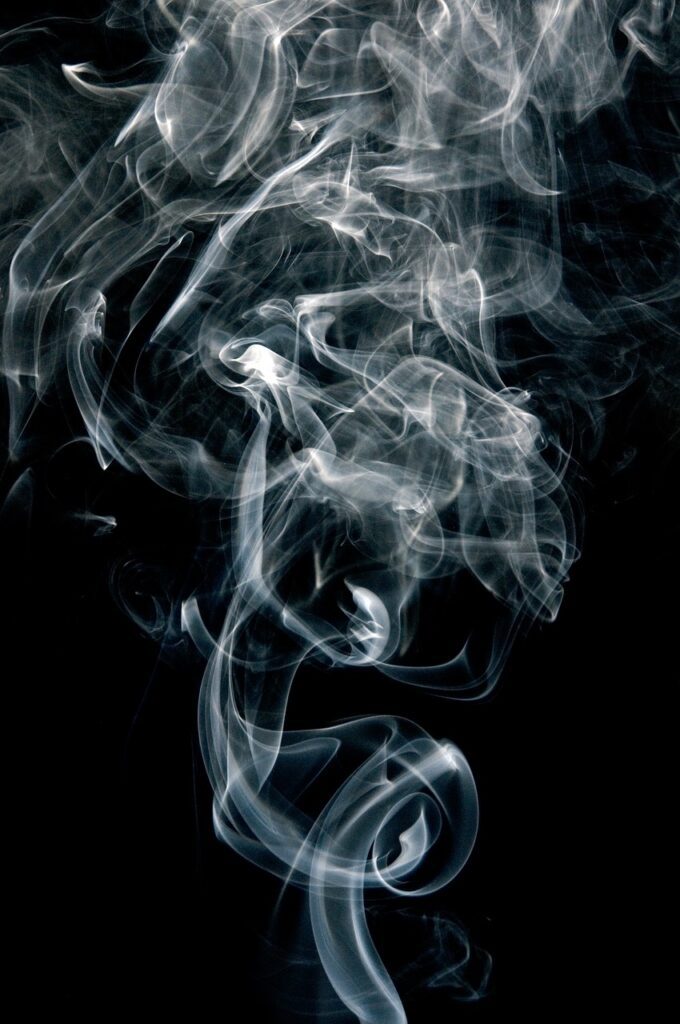
Herbal Tea in Different Cultures
Herbal tea has been consumed by different cultures for centuries. Each culture has its unique way of preparing and drinking herbal tea. In Vietnamese culture, herbal tea is known as “Tra” and is often consumed after meals to aid digestion. Tra is made from a variety of herbs, including ginger, lemongrass, and pandan leaves. It is usually served hot or cold, and sugar is added to taste.
Traditional Chinese Medicine (TCM) also uses herbal tea extensively. TCM practitioners believe that herbal tea can help balance the body’s yin and yang energies, promoting overall health and well-being. TCM herbal teas are made from a variety of herbs, including ginseng, goji berries, and chrysanthemum flowers. Each herb has its unique properties and is believed to have different health benefits.
In ancient times, herbal tea was used as a natural remedy for various ailments. For example, chamomile tea was used to treat insomnia, while peppermint tea was used to relieve stomach pain. Today, herbal tea is still used as a natural remedy for various health conditions, including anxiety, depression, and headaches.
Overall, herbal tea has been an essential part of different cultures for centuries. Whether it is consumed for its health benefits or as a social ritual, herbal tea is a versatile and enjoyable beverage that can be enjoyed by people of all ages.
Legal and Regulatory Aspects
When it comes to smoking herbal tea, there are some legal and regulatory aspects that need to be considered. In the United States, the Food and Drug Administration (FDA) is responsible for regulating the safety and labeling of herbal products, including those used for smoking.
According to the FDA, smoking herbal tea is not considered safe or approved for use. Additionally, the FDA has not evaluated the safety or effectiveness of herbal tea for smoking. Therefore, it is not recommended to smoke herbal tea.
It is also important to note that smoking herbal tea can be illegal in some states or jurisdictions. For example, some states have laws that prohibit the sale of herbal products for smoking purposes. It is important to research and understand the laws in your area before smoking herbal tea.
In summary, smoking herbal tea is not recommended or approved by the FDA and can be illegal in some areas. It is important to consider these legal and regulatory aspects before smoking herbal tea.
Recent Trends in Herbal Tea Smoking
In recent years, there has been a growing trend of smoking herbal tea for various reasons, including a caffeine boost, cognitive enhancement, and even lucid dreams. While smoking tea may seem like an unusual practice, it has become increasingly popular among those seeking alternative ways to consume caffeine and other natural compounds found in herbal teas.
One of the most common reasons people smoke herbal tea is for a caffeine boost. While traditional coffee and tea are popular sources of caffeine, smoking tea can provide a quicker and more potent effect. However, it is important to note that smoking tea can also have negative health consequences, such as lung damage and respiratory issues.
Another reason people smoke herbal tea is for cognitive enhancement. Some herbal teas, such as ginkgo biloba and gotu kola, are believed to have cognitive-enhancing properties. Smoking these teas may provide a more direct and potent effect compared to traditional consumption methods, such as brewing tea.
In addition to caffeine and cognitive enhancement, smoking herbal tea has also been linked to lucid dreaming. Certain herbs, such as blue lotus, are believed to have dream-enhancing properties. Smoking these herbs before bed may increase the likelihood of experiencing lucid dreams.
While smoking herbal tea may have its benefits, it is important to note that pre-fabricated green tea cigarettes and caffeine vape pens are not necessarily safe or regulated products. It is important to exercise caution when using these products and to only purchase from reputable sources.
Overall, smoking herbal tea is a growing trend that offers alternative ways to consume natural compounds found in herbal teas. However, it is important to be aware of the potential health risks and to use caution when using pre-fabricated products.
Practical Tips for Smoking Herbal Tea
If you’re considering smoking herbal tea, there are a few practical tips to keep in mind to ensure a smooth and enjoyable experience.
Choose the Right Tea
Not all herbal teas are suitable for smoking. It’s important to choose a tea that is safe to smoke and has a pleasant taste. Some teas that are commonly used for smoking include chamomile, lavender, and mint. It’s important to avoid teas that contain caffeine or other stimulants, as these can have negative effects on the body when smoked. Dark teas are also not recommended for smoking, as they can contain high levels of tannins which can be harmful when inhaled.
Check the Moisture Content
Before smoking herbal tea, it’s important to check the moisture content. If the tea is too dry, it may burn too quickly and produce harsh smoke. On the other hand, if the tea is too moist, it may not burn properly and produce little to no smoke. Ideally, the tea should be slightly moist to the touch, but not wet.
Roll with Rolling Papers
When smoking herbal tea, it’s important to use rolling papers designed for smoking. Regular paper or other materials may contain harmful chemicals that can be harmful when inhaled. Rolling papers are designed to burn evenly and produce a smooth smoke.
Be Mindful of Anxiety Levels
While smoking herbal tea can be a relaxing and enjoyable experience, it’s important to be mindful of anxiety levels. Some people may experience increased anxiety or panic when smoking, especially if they are sensitive to the effects of caffeine or other stimulants. If you are prone to anxiety, it’s best to start with a small amount of tea and gradually increase as you become more comfortable.
Effects of Smoking Herbal Tea
Smoking herbal tea can produce a range of effects, depending on the type of tea and the individual. Some people may experience a mild buzz or sense of relaxation, while others may feel more alert or focused. It’s important to be aware of the effects of the tea and to smoke in a safe and responsible manner.
In the long run, smoking herbal tea is not recommended as it can have negative effects on the lungs and respiratory system. It’s important to use moderation and to consider other methods of enjoying herbal tea, such as brewing and drinking it.
Conclusion
In conclusion, smoking herbal tea can be an alternative to traditional tobacco smoking. However, it is important to note that there is limited research on the effects of smoking herbal tea on the body.
While some herbal teas have been found to have potential health benefits, such as improving blood circulation and boosting the immune system, smoking herbal tea may not provide the same benefits as drinking it.
Furthermore, smoking any substance can have negative effects on the body, including an increased risk of heart disease and other health problems. Therefore, it is important to consider the potential risks before smoking herbal tea as a natural way to smoke.
If you do choose to smoke herbal tea, it is important to use high-quality, organic herbs that are free from pesticides and other harmful substances. This can help ensure a smoother smoke and reduce the risk of negative side effects.
In the end, the bottom line is that smoking herbal tea may be a natural alternative to traditional tobacco smoking, but it is important to weigh the potential risks and benefits before trying it. As more research is conducted on the effects of smoking herbal tea, we may gain a better understanding of its potential health benefits and risks.
Frequently Asked Questions
Is it safe to smoke herbal tea?
While herbal tea is generally safe to consume as a beverage, smoking it can be harmful to your health. The smoke from burning tea leaves can contain harmful chemicals that can damage your lungs and respiratory system. It is not recommended to smoke herbal tea.
What are the potential health risks of smoking herbal tea?
Smoking herbal tea can lead to respiratory problems such as coughing, wheezing, and shortness of breath. It can also cause lung irritation and inflammation, which can lead to chronic bronchitis and other respiratory conditions. Additionally, smoking herbal tea can increase your risk of developing lung cancer.
Can smoking herbal tea help with anxiety or stress?
There is no scientific evidence to support the claim that smoking herbal tea can help with anxiety or stress. In fact, smoking anything can actually increase anxiety and stress levels due to the harmful chemicals and toxins in the smoke.
What are some alternatives to smoking herbal tea?
If you are looking for a natural way to relax and reduce stress, there are many alternatives to smoking herbal tea. You can try drinking herbal tea as a beverage, practicing mindfulness and meditation, or engaging in physical activity such as yoga or tai chi.
How does smoking herbal tea compare to smoking cigarettes?
Smoking herbal tea is not the same as smoking cigarettes. While both involve inhaling smoke, cigarettes contain tobacco and many harmful chemicals, while herbal tea is made from natural plant materials. However, smoking any substance can be harmful to your health.
What are the potential benefits and drawbacks of smoking herbal tea?
There are no proven benefits to smoking herbal tea, and it can have many drawbacks, including respiratory problems and increased risk of lung cancer. Additionally, smoking herbal tea can be addictive and may lead to dependence on nicotine or other harmful substances.

